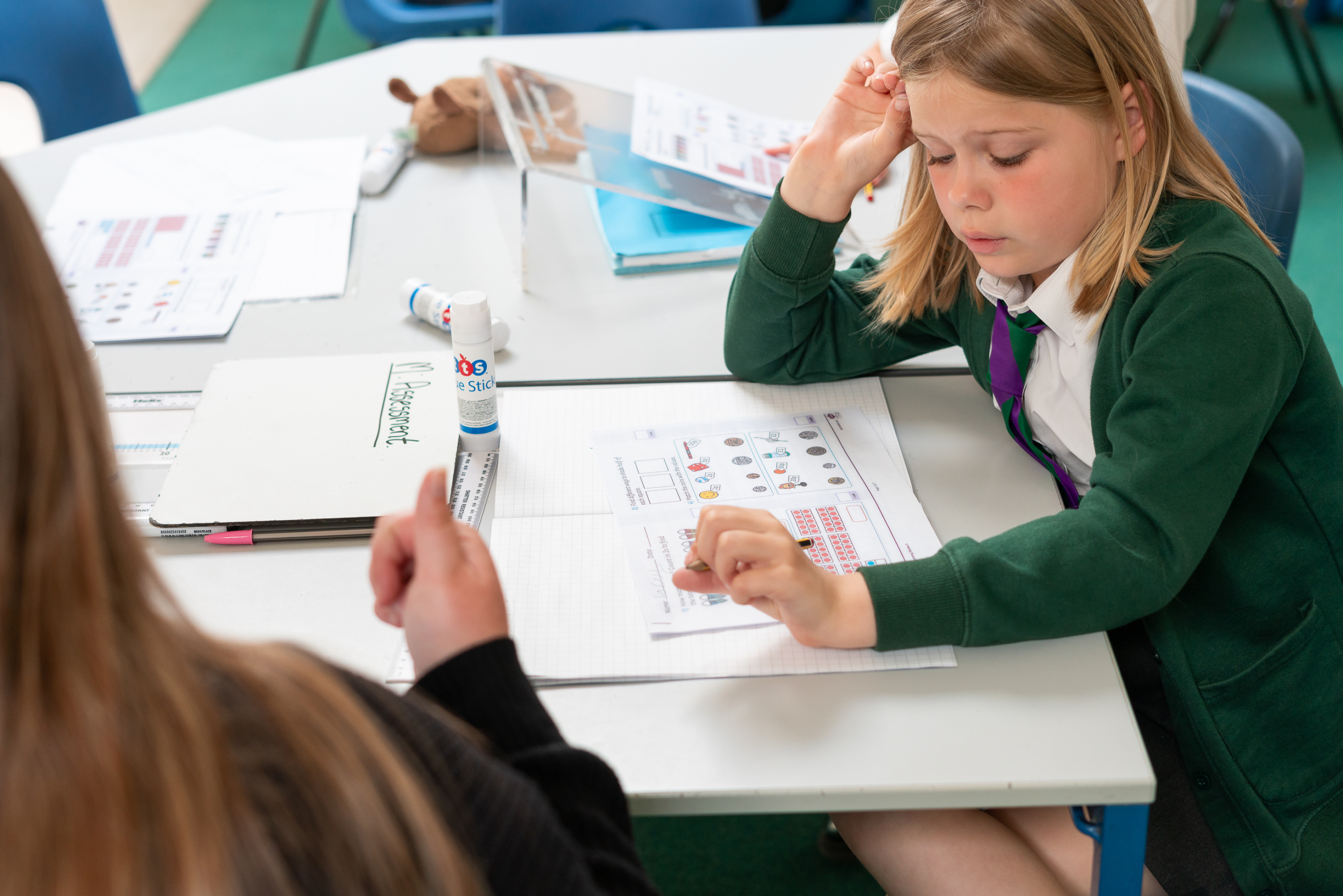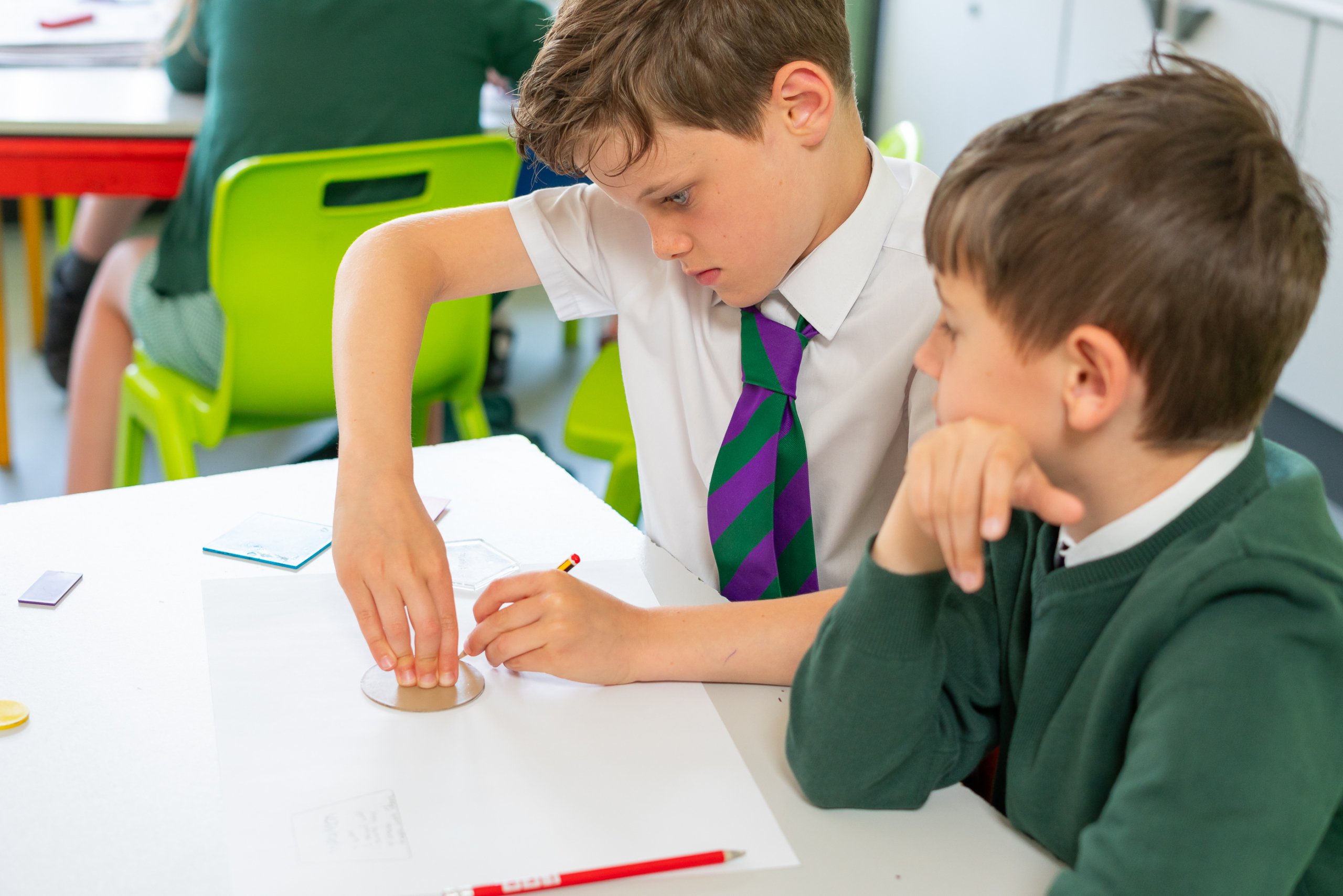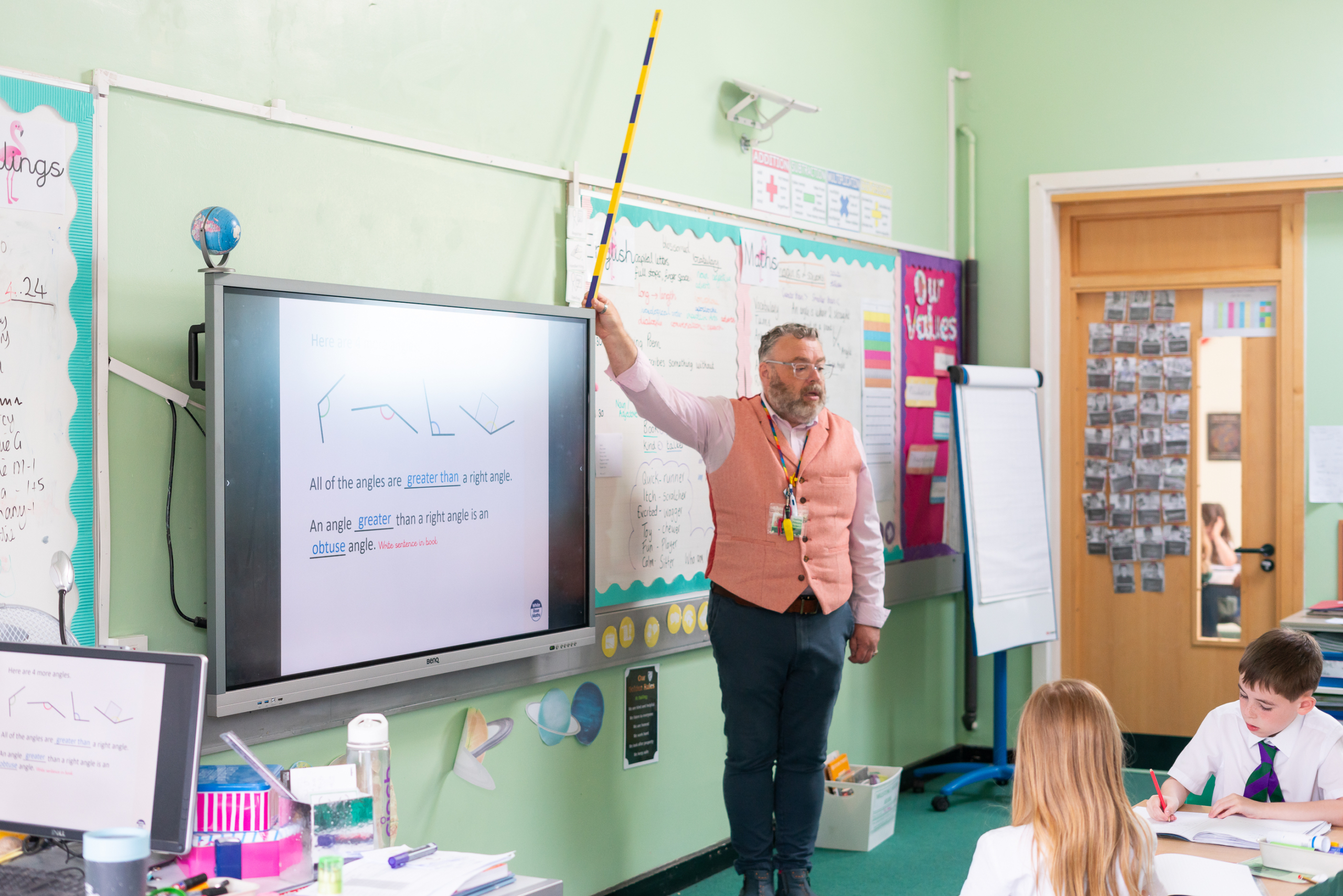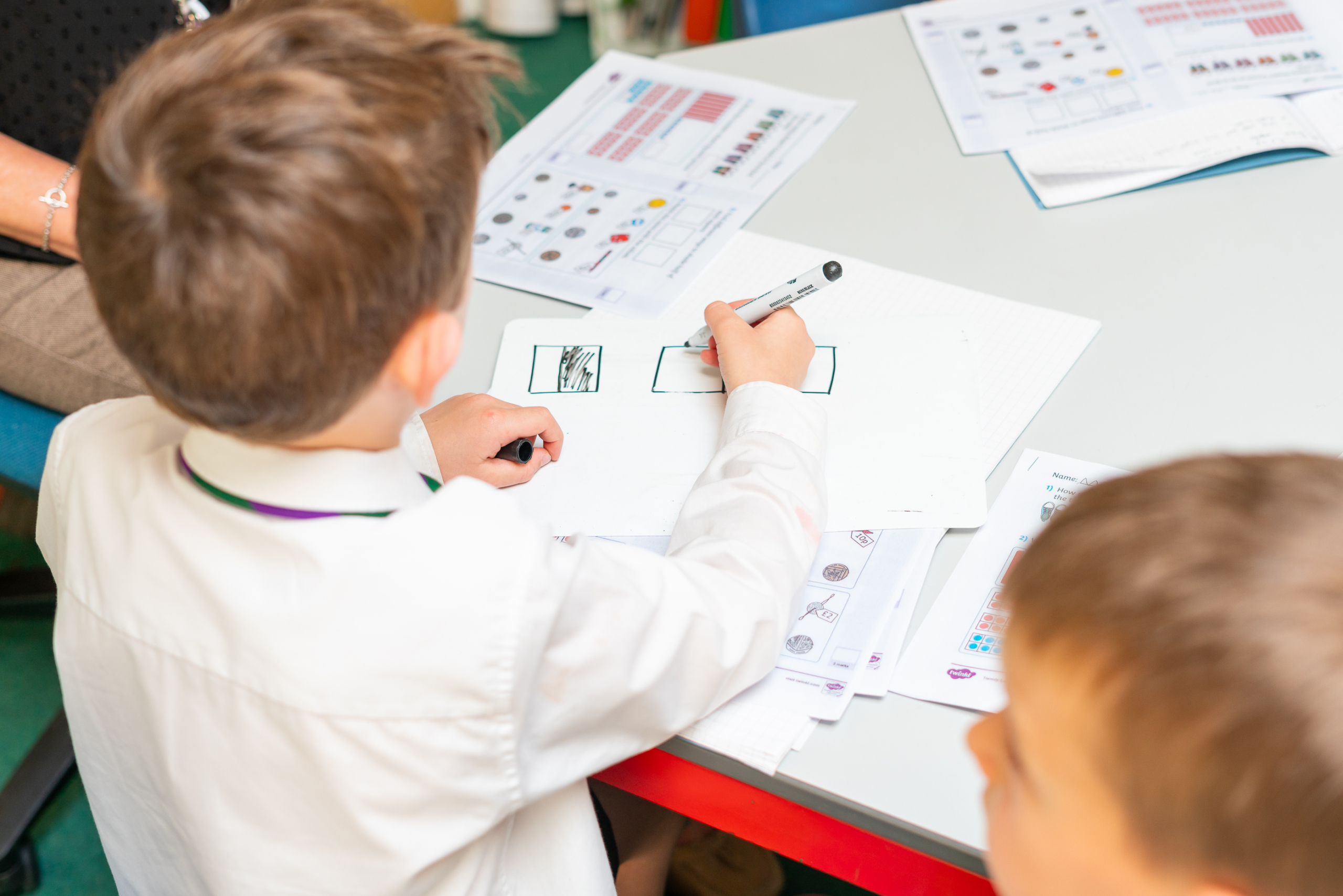Mathematics Subject Leader: Miss S Leese
Having a high-quality mathematics education is an essential part of everyday life and is crucial to providing a foundation for a child’s future. Here at Halling, we provide adapted support to all our pupils throughout their Mathematic lessons to ensure they can achieve their best.
Intent
The 2014 National Curriculum for Maths aims to ensure that all children:
- Become fluent in the fundamentals of Mathematics
- Able to reason mathematically
- Can solve problems by applying their Mathematics
- Can solve problems actively by applying their Mathematics in active maths lessons.
At Halling Primary, these skills are embedded within Maths lessons and developed consistently over time. We are committed to ensuring that children will be able to recognise the importance of Maths in the wider world and that they are also able to use their mathematical skills and knowledge confidently in their lives in a range of different contexts.
We want all children to enjoy Mathematics and to experience success in the subject, with the ability to reason mathematically. We are committed to developing children’s curiosity about the subject, as well as an appreciation of the beauty and power of Mathematics.



Implementation
The content and principles underpinning the 2014 Mathematics curriculum and the Maths curriculum at Halling Primary reflect those found in using high‐performing education systems like, ‘Chris Quigley Essentials Curriculum’.
These principles and features characterise this approach and convey how our curriculum is implemented through:
- Teachers adopt a mastery approach with an expectation that all children will be capable of achieving high standards in Mathematics.
- A large majority of children progress through the curriculum content at the same pace. Differentiation is achieved by emphasising deep knowledge and through individual support and intervention.
- Teaching is underpinned by methodical curriculum design and supported by carefully crafted lessons and resources to foster deep conceptual and procedural knowledge.
- Practice and consolidation play a central role. Carefully designed variation within this builds fluency and understanding of underlying mathematical concepts.
- Teachers use precise questioning in class to test conceptual and procedural knowledge and assess children regularly to identify those requiring intervention so that all children keep up.
To ensure whole consistency and progression, the school uses the DfE-approved ‘White Rose’ Maths scheme, Chris Quigley Essentials Milestones. This along with the school’s ongoing engagement with the DFE-funded Maths Hubs programme, continues to ensure that staff at all levels understand the pedagogy of the approach.
In Key Stage 1, new concepts are almost always presented with objects (concrete manipulatives) for children to use. Children may also use manipulatives in KS2 and we encourage the use of manipulatives at all times. Teachers use careful questions to draw out children’s discussions and their reasoning. The class teacher then leads children through strategies for solving the problem, including those already discussed. Independent work provides the means for all children to develop their fluency further, before progressing to more complex related problems.
Mathematical topics are taught in blocks, to enable the achievement of ‘mastery’ over time. Each lesson phase provides the means to achieve greater depth, with more able children being offered rich and sophisticated problems, as well as exploratory, investigative tasks, within the lesson as appropriate.
Impact
The school has a supportive ethos and our approaches support the children in developing their collaborative and independent skills, as well as empathy and the need to recognise the achievement of others. Children can underperform in Mathematics because they think they cannot do it or are not naturally good at it.
The curriculum addresses these preconceptions by ensuring that all children experience an active, enjoyable, challenge and success in Mathematics by developing an active, growth mindset.
Regular and ongoing assessment informs teaching, as well as intervention, to support and enable the success of each child. Interventions are taken place at the earliest convenience to ensure the children are able to achieve and progress. These factors ensure that we shall be able to maintain high standards, with achievement at the end of KS2 above the national average and a high proportion of children demonstrating greater depth, at the end of each phase.

Mathematics in Each Stage
Aims for the end of EYFS:
The statutory framework for the early years foundation stage 2017 in relation to mathematics aims for pupils to:
- count confidently,
- develop an understanding of numbers to 10, understanding the relationships and patterns,
- secure a base of knowledge and vocabulary,
- develop spatial reasoning skills including areas such as shape, space and measures,
- build a positive attitude towards mathematics where children not afraid to make mistakes and are interested in spotting patterns and connections.
The national curriculum for the end of key stage one states pupils will:
- develop confidence and mental fluency with whole numbers, counting and place value,
- recognise, draw, compare and sort different shapes using related vocabulary,
- describe and compare different quantities including length, mass, capacity/volume, time and money,
- confidently recall number bonds to 20,
- read and spell mathematical vocabulary.
Aims for the end of KS2:
The national curriculum for the end of key stage two states pupils will:
- extended understanding of the number system and place value including large integers,
- develop connections between multiplication and division facts with fractions, decimals, percentages and ratio,
- solve a wide range of problems, including complex properties of number and arithmetic, and efficient use of written and mental methods,
- consolidate and extend knowledge of numbers through geometry and measures,
- classify shapes with increasing complex geometric properties using appropriate vocabulary to describe them,
- show confidence in the written methods for all four operations, including long multiplication and division, alongside fractions, decimals and percentages.
- read, spell and pronounce mathematical vocabulary correctly.
Mathematics Progression
Assessments
For Maths, the children will be assessed formally twice a year in Years 1, 2, 3, 4 and 5 and 3 times per year in 6. These assessments will be based around the curriculum for their year group. These assessments give the children a standardised score.
SEND Information
We ensure that SEND and disadvantaged children are given the necessary support in class to fully access the Maths Curriculum and equal opportunities are given for all to be confident in approaching any problem within the world around them.
Mathematics Extra Resources
Further Mathematics Help
Fun Mathematics Games

